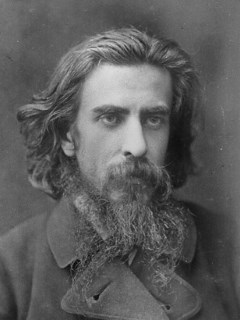
Publication details
Publisher: Springer
Place: Berlin
Year: 1999
Pages: 155-175
Series: Studies in East European Thought
Full citation:
, ""Impersonalismus" und die "werdende Vernunft der Wahrheit" in Solov'evs Spätphilosophie", Studies in East European Thought 51 (3), 1999, pp. 155-175.


"Impersonalismus" und die "werdende Vernunft der Wahrheit" in Solov'evs Spätphilosophie
pp. 155-175
in: Studies in East European Thought 51 (3), 1999.Abstract
Is Solovyov's philosophy pantheistic, is the individual absorbed by the absolute? Ehlen investigates Solovyov's late "Teoretičeskaja filosofija" (1897--99). Results: 1. According to Solovyov philosophy necessarily strives for unconditional truth. 2. Descartes could not prove the unconditional certainty of the substantiality of the human Ego. 3. The unconditional certainty, which we have with regard to the factual contents of our conscience is unable to base metaphysics. 4. The logical form of thinking is unconditional. 5. By searching for a truth, which meets this form, reason modifies itself: the unconditional truth becomes the form of the searching reason. Conclusion: Although this searching for unconditional truth is stimulated by the absolute truth, nevertheless this searching is possible only as a free and responsible act. It is completed by practice (love). Solovyov's articles on Comte (1898) and on "The meaning of love" (1982--94) do not contradict this outcome: the late Solovyov acknowledges the freedom and personality of the human Ego.
Cited authors
Publication details
Publisher: Springer
Place: Berlin
Year: 1999
Pages: 155-175
Series: Studies in East European Thought
Full citation:
, ""Impersonalismus" und die "werdende Vernunft der Wahrheit" in Solov'evs Spätphilosophie", Studies in East European Thought 51 (3), 1999, pp. 155-175.

